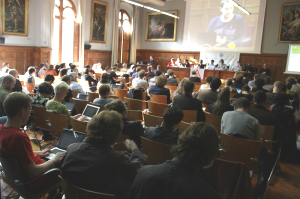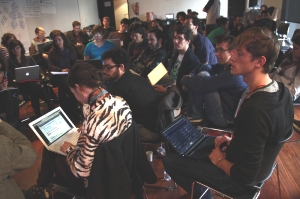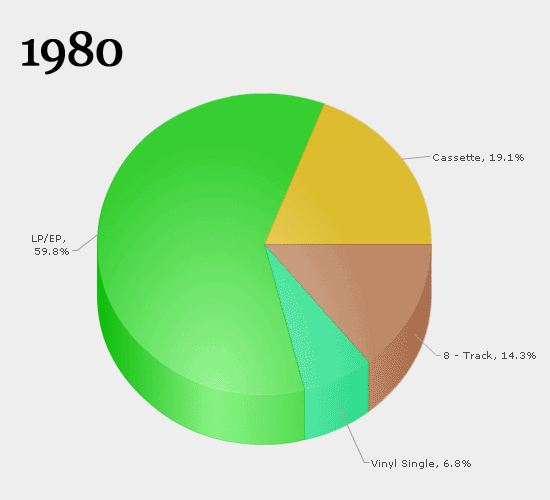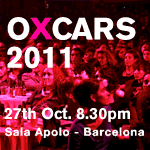FCForum 2011, 27 – 30 October
The 2011 FCFORUM: Networks for a R-evolution
What the Internet has done for us, and what we can now do for it

For this reason, the 2011 FCForum will use the Spanish State as a point of departure for an analysis of the global situation.
Working method

The FCForum is open to anybody who is interested in participating. It is free, and registration is not required. Everybody can participate, taking into account the different levels of knowledge and skills.
The FCForum working method consists of discussing different hypotheses so that we can all end up working together on a unifying strategy. There are no long speeches, only presentations of the different hypotheses as a point of departure for the discussions.
Discussions will focus on the sticking points between the different proposed models, in an attempt to identify possible mechanisms that can bring them together and make them compatible. We believe it is possible to create an inclusive mechanism within the autonomy of each agent, which can boost all the alternatives by means of strengthening each one, through the others.
The results will be defined online in the weeks following the FCForum, in the form of “recommendations” that can be used to:
- Provide arguments for political “reformers”: they are a tool with which to lobby political parties, institutions and government agencies, with the aim of influencing the legislative changes that are currently being considered and introduced.
- Provide tools for citizens as active agents facing a change of paradigm, so that they can take advantage of its potential to the full.
- Create a network of affinity and global collaboration based on a common interest in the defense of the Internet and free/libre culture.
Working areas
- Challenges and tools for the defense of the Internet and of sharing at the global level. International coordination of struggles in defense of the Internet and of sharing: we will introduce the challenges we are facing, with our sights set on the G20 summit on the Internet that will be held the following week in southern France.
- Tools for communication, self-organisation and defense in the context of the #globalrevolution. What forms and tools of networked organisation and communication have made the emergence of #15M possible? How can these practices be improved? How have individual and collective forms of action changed in this context? How does Netiquette and the hacker culture enable and structure the behaviour of people in the group, providing an at least partial solution to one of the problems that we have always encountered in the social movements: the psychological aspect, the fulfilment of each individual in the struggle?
- Sustainable models for creativity in the digital age: case studies, practical examples and analysis following the How-To guide for sustainable creativity drafted at the FCForum 2010. The creative sector has proved to be particularly reluctant to adapt to the new digital context. Since 2009, the FCForum has been working towards proving that this fear of change is no longer an option. Our base is a practical approach for implementing new sustainable models for the creation of culture and knowledge in the digital age. For this reason we have invited entrepreneurs and agents who have rolled up their sleeves and started actively working to become part of this necessary change. Through specific case studies, we will explore the problems and solutions for a new cultural entrepreneurship, which respects the rights of authors, of entrepreneurs and of civil society at the same time.
For further information, see the Program.






